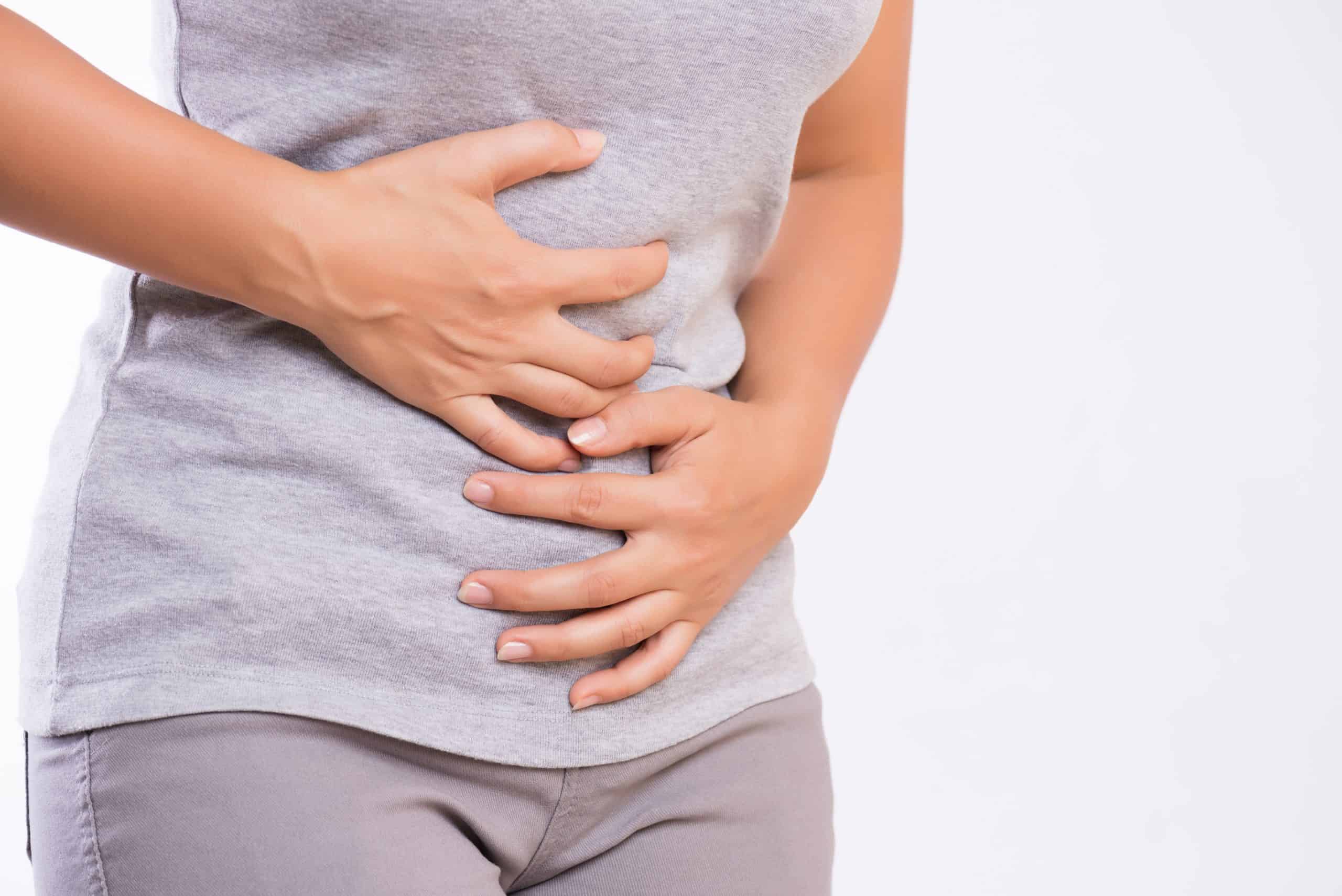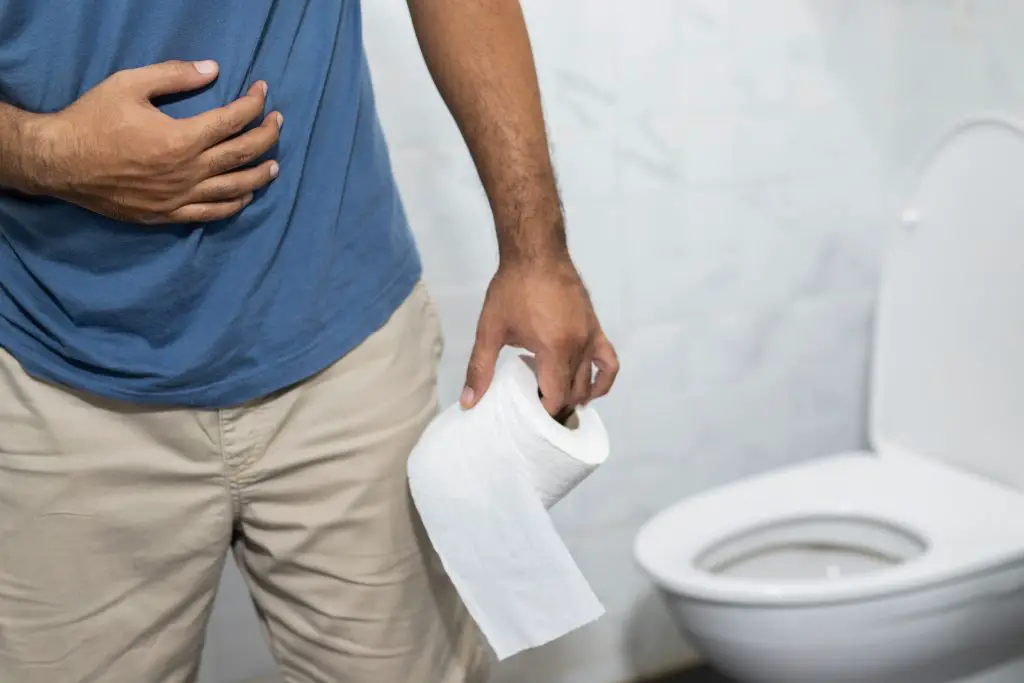Should I Stop Taking Probiotics if They Make Me Bloated?

As an affiliate, we may earn a commission from qualifying purchases. We get commissions for purchases made through links on this website from Amazon and other third parties.
You may have heard about the benefits of probiotics, but did you know that they can also cause bloating?
Whilst feeling bloated may be temporary, it is wise to weigh up the pros and cons to see if they are the best solution for you.
Probiotics are a great way to help your digestive system stay healthy, and often provide relief from many symptoms.
However, if you have been experiencing stomach pain or discomfort after taking probiotics then it might be worth considering whether or not you want to continue with them.
Sometimes the side effects will go away as your body adjusts to the probiotic pills and other times there is no fix besides discontinuing use.
You should always consult with your doctor before making any changes in treatment for this reason. But don’t worry! There are plenty of things that can help ease those uncomfortable feelings like eating smaller meals more frequently and avoiding high-fat foods.
You know your body better than anyone, so if you think something is off, you should discuss it with the doctor to figure out what’s best for you.
The myth surrounding probiotics and bloating
There are a lot of myths about probiotics that can be confusing for those who want to take them. One common myth is that you should stop taking probiotics if they make you bloated.
This is false!
Probiotic bloating sometimes occurs because some strains of bacteria produce gas as part of their normal function, and the gas will cause your stomach to bloat or feel uncomfortable.
In this case, it’s best to start with a lower dose and then gradually increase it after time passes.
The other reason why people might experience bloating due to probiotics is during the transition from antibiotic use (which kills most intestinal bacteria) and starting probiotic supplementation (which introduces new bacteria).
There may also be an imbalance in gut flora where certain types

Are there any side effects from suddenly stopping?
Let’s take a look at some of the most common side losses from suddenly stopping taking probiotics:
- stomach cramps
- bloating
- gas
- constipation
- diarrhea
– stomach cramps
These are not likely to be caused by taking the probiotics, but rather by stopping them. In some cases though, it can be a sign that you have SIBO or candida overgrowth.
If these symptoms don’t go away within a few weeks of stopping your probiotics and/or you have a lot of other health problems – please see your doctor for further investigation.
– bloating
Stopping your probiotic supplement suddenly will almost definitely cause bloating as your gut microbiome has been disrupted and this causes an increase in gas which makes you feel bloated.
This is again more likely to happen if you suffer from IBS as well as SIBO/candida overgrowth as those two conditions predispose people with SIBO to be more likely to experience an increase in gas when stopping probiotics.
– gas
As with being bloated, the sudden stop of your probiotic supplement may lead to an increase in flatulence due to the disruption in your microbiome.
– constipation
Constipation is another symptom that can occur when you suddenly stop taking a probiotic or any other supplements/medications for that matter.
However, constipation by itself is not a side effect of taking a probiotic and should go away if you eat more fiber and drink enough water.
It’s even less likely this would happen if you keep taking your previous dose but spread them out over several days rather than stopping them cold turkey – if it’s been a long time since you’ve had a bowel movement feel free to incorporate more fiber and water into your diet if it doesn’t resolve with eating more fiber.
– diarrhea
Diarrhea is also not an expected side effect of taking probiotics, however, stopping them can certainly cause diarrhea as the sudden lack of bacteria in your gut has disrupted the microbiome and therefore increased fermentation which causes gaseous diarrhea which makes you run for the toilet!
Again this is likely to happen with IBS or SIBO/C overgrowth people as those conditions predispose SIBO sufferers to experience an increase in gas when stopping probiotics.
In conclusion
If you are experiencing any side effects from taking probiotics, it is important to talk with your doctor.
Probiotics are not always without side effects and some people may experience the feeling of being bloated or nauseous while others don’t have any issues at all.
If you find that the probiotic is causing you to feel discomfort then stop taking them immediately and consult with a healthcare professional for more information about other options. After all, being bloated is both uncomfortable and not a desirable effect of trying to improve your well-being and health.
A quick reminder ..
Probiotics.tips aim to provide the most up-to-date information, help, and advice for YOU to make informed decisions. If you are unsure or uncertain and require more clarity, please reach out to us and we will gladly come back and advise you as best we can.
The best means to reach us is via email at info@probiotics.tips or fill out the form on our Contact Us page – click here.
Probiotics.tips
About Us
Our goal is to empower you with concise probiotic guidance for a healthier gut. With expert advice, we provide the knowledge to improve your well-being and navigate the world of probiotics efficiently, ensuring you achieve optimal gut health.
- Can You Take Probiotics While Water Fasting?
- Does Fasting Help Microbiome Diversity and Functionality?
- Does Fasting Help Your Bowels
- Does Fasting Help Probiotics? Understanding Gut Health Benefits
- Does Fasting Help the Gut: Understanding the Impact on Digestive Health
Disclaimer
As an affiliate, we may earn a commission from qualifying purchases. We get commissions for purchases made through links on this website from Amazon and other third parties.
Check these out on Amazon








